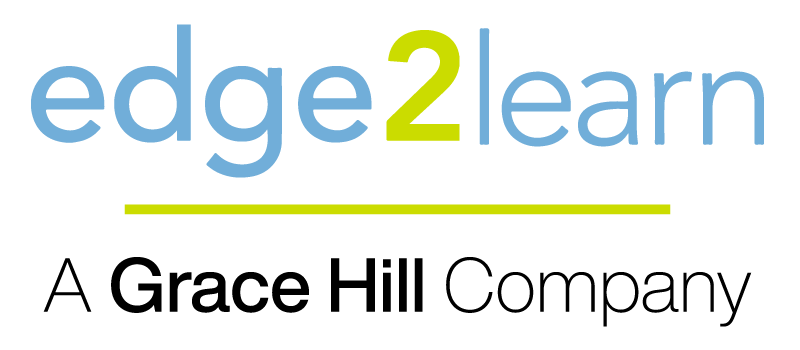Changes in technology combined with that of customer demographics and expectations are forcing businesses to move more swiftly and frequently. This closely resembles a dance, as companies are trying to stay in step with their customer’s wants and needs, including the emergence of Generation Z into adulthood and the workforce. We must develop best practices in multifamily training to support the Gen Z generation.
“Life’s a dance you learn as you go. Sometimes you lead, sometimes you follow. Don’t worry ‘bout what you don’t know. Life’s a dance you learn as you go.” – from the song Life’s a Dance by John Michael Montgomery
We could easily replace the word “life” in these song lyrics with training, marketing, managing, etc. You name it! The fact is everything we do in this industry closely resembles a dance, and that dance can take on a variety of forms. As the song reminds us, sometimes we really don’t know, and we simply learn as we go. When the customer’s priorities shift, we must be prepared to shift with them. Let’s consider our focus on recruiting and training the Millennial generation. Our leadership, marketing, and training departments have been hyper-focused on this generation for years. Thousands of books and articles have been written about Millennials and studies have been conducted. But is it time to shift again and welcome in a new dance partner?
While we don’t intend to abandon the Millennials or other generations, our radar should be turning to Generation Z, who tend to be very different from their older siblings. Born after 1996, Gen Z will surpass Millennials in 2019 as the largest generation, and early signs show they are about to shake things up. They will soon fill your leasing offices as employees and residents, and best practices in multifamily training must align with their needs. “The only way to make sense out of change is to plunge into it, move with it, and join the dance.”- Alan W. Watts
Many companies are already plunging, moving, and joining the Generation Z dance! Are you ready?
You may feel like you have plenty of time to move and adjust, but you don’t. The oldest members of Generation Z are currently in college. Gen Z makes up 26% of the United States population, the largest single population segment. One stark difference between Millennials and Gen Z is their view on education, and this could have a great impact on our industry and on best practices in multifamily training. While Millennials are the most educated generation in history, according to a Huffington Post article many employers are predicting that more Gen Z teens, between the ages of 16 and 18 will go straight into the workforce, opting out of the traditional route of higher education, and instead finishing school online if at all. How different will they be from Millennials as they enter the workforce and consumer marketplace?
Here are 4 tips to recruit, train, and retain Generation Z Talent.
1. FINANCES
In 2018, Raddon Research Insights analyzed the results of a national survey encompassing more than 2,500 high school sophomores, juniors and seniors to examine their attitudes towards their finances. Interestingly, while most have yet to enter the workforce, they are already earning and saving. More than two-thirds of them have either their own bank account or a joint account shared with their parents. While many of them are still in school, they hold more than 40 billion in purchasing power in the U.S.
Their view toward debt is also very different from their Millennial siblings. They don’t want to burden themselves with massive student loans. More than six in 10 Millennials (63 percent) have graduated or will graduate with student loan debt and nearly half (46.5 percent) are still paying off their student loans, according to a survey of 1,338 Millennials conducted by LendingTree. In a 2017 study by the Center for Generational Kinetics, at least one in five Gen Z respondents said debt should be avoided at all costs. Jason Dorsey, president of the Center for Generational Kinetics shared his thoughts during an interview with MIC.com, “Generation Z is intentionally choosing to attend a less expensive college so they can graduate with less debt. No or less debt means they can enter the job force with more mobility, allowing them to take a job they really want that may pay less, because a good amount of their salary won’t be going to a college fund.” Interestingly, Generation Z members are behaving more like their grandparents and clinging to financial habits reminiscent of those born during the Great Depression, at least for now.
2. EMPLOYEE BENEFITS
In a recent Edge2Learn blog post, we mentioned how companies are offering student loan repayment benefits to attract college-educated Millennials. This was driven by a need: the tremendous student loan debt the Millennial generation has amassed. Generation Z does not intend to follow that same road, so that might not be an attractive benefit for them. The signs are pointing to a very money-cautious generation, and benefits such as financial counseling sessions might help to build trust and loyalty with your company. Explaining the importance of saving, and then helping them to develop their plan to save for the future is a great way to attract and retain a Gen Z employee.
Generation Z may not be overly excited about the health insurance portion of your employee benefits package because they’ll still qualify for their parents’ health plan until age 26. In fact, health insurance at work is now considered a “standard” among employee benefit packages. What could be appealing is offering telemedicine programs. Being able to get instant access to a doctor’s advice and get prescriptions without losing time for a visit will be much valued by these smartphone natives, or any of us for that matter!
What might surprise you is a survey conducted by Ernst & Young which revealed that 84 percent of respondents cited “potential for career progression and growth” as one of the main reasons to work for any given employer. Generation Z are placing career growth at the top of their priority list, so professional development and best practices in multifamily training should be a core pillar of your company culture and recognized as a part of your employee benefits package. It should be outlined with detail rather than just fluffy marketing words. Formal mentoring programs, training programs, and reimbursement policies to cover industry courses, conferences, and seminars would all be embraced by Gen Z.
3. COMMUNICATION
You may want to sit down for this. A 2014 study found that 53 percent of Gen Z respondents prefer face-to-face communication over Millennials’ preference of messaging platforms and texts. In fact, they tend to be more aligned with their Generation X parents in their willingness to engage in face-to-face interactions. It is clear that this young generation wants to see your product in-person before making a purchase. This is an important message for your leasing teams. They desire to talk with someone knowledgeable about a product for a trusted review instead of solely depending on a critique posted by a random stranger. Don’t misunderstand, online reviews are still a well-used source for product information, but results of a survey by Power Reviews revealed that 70% of Gen Z consumers want access to honest product ratings and reviews while shopping in stores.
At the end of the day, they prefer communication tools that are the most effective, even if using them takes more time. This is a huge change from Millennials who seek mostly time savers. Here is one final tidbit of information and it has to do with buyers’ remorse. The National Retail Federation’s 2017 Retail Holiday Planning Playbook revealed that 80 percent of Gen Z end up returning purchases after holiday shopping. Will this extend to all of their purchasing endeavors including leasing an apartment? Only time will tell, but it is a good reminder of the importance of truly partnering with the customer, understanding their needs, and providing a solution that is best for them. Gen Z might also motivate leasing consultants to use the follow-up process to solidify their sale and head-off any buyer’s remorse.
4. LOYALTY
The icing on the cake is that they understand things take time. Unlike Millennials, they see professional development from a more long-term standpoint. They will likely seek stepping stones towards success, even if they don’t pay out right away. Hopefully, this will lead to reduced turnover and increased tenure for companies who can provide a clear growth plan. Gen Z is also interested in working for a company they are passionate about and may accept a lower paycheck to do so. The signs show a hardworking, loyal employee who is dedicated to their investment.
If you thought Millennials had a strong desire to have their ideas heard, you haven’t seen anything yet! Gen Z wants a voice at the table. They envision a workplace that is less about age and more about ideas and contributions. Studies have revealed that the perfect work environment for Generation Z might be a blend of the Generation X and Millennial workplace. They prefer a balance of group and independent work, and they seek a workspace that allows them to have privacy while still giving them space to work together as a team.
You might find your Generation Z employees to be more loyal than Millennials, but job hopping could still be a problem. A study by Adecco Staffing USA revealed that 83% of today’s students believe that three years or less is the appropriate amount of time to spend at their first job. By providing effective and frequent training, as well as professional development opportunities, employers can help Gen Z find a niche within the company and maintain a high level of engagement to best retain this very talented generation through new best practices in multifamily training.
Your employee’s priorities and your best practices in multifamily training will soon shift as more members of Generation Z enter the workforce. Is your company culture a good match for the Gen Z employee? Are you prepared to plunge, move, and dance with them?
Read more like this from Edge2Learn

Maria Lawson
Vice President of Training and Development
Edge2Learn / Ellis Partners in Management Solutions



